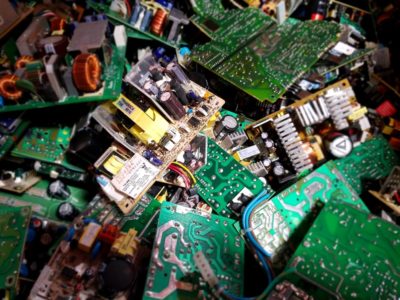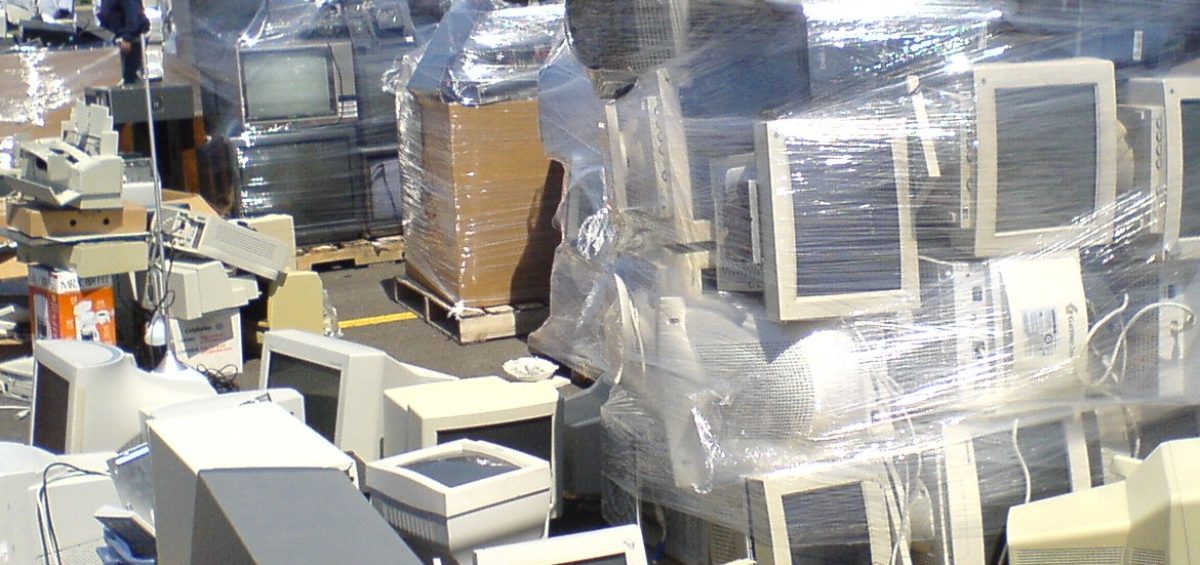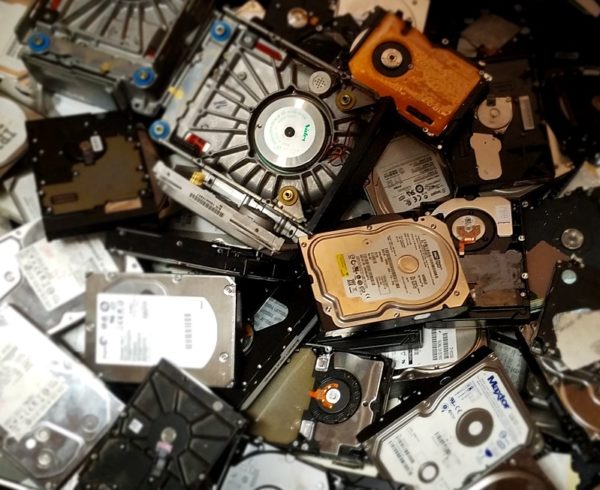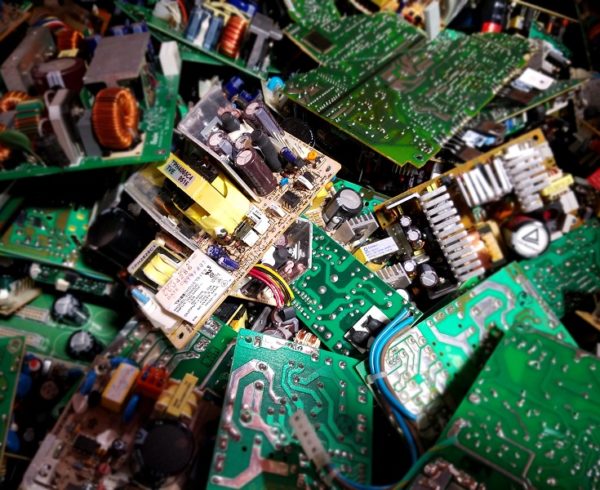Technologies are always expanding and developing in this digital age. With more developments of these technologies we can see how these technologies are replacing older electronics. A good example of this are cell phones. Today’s cell phones are more than just a phone, they are a camera, a gps, a music player, an entertainment device, video player, and more. As the cell phones of yesterday are being replaced we are finding that many of these outdated devices are ending up in landfills, where they become hazardous materials. We are also discovering that it’s not just cell phones that are ending up in our landfills but there are computers, monitors, household appliances, motors, batteries, printers, copiers, cameras, and much more.
Dangers of not Recycling Electronics
 When you dispose of electronics improperly you are allowing your old electronics pollute our landfills. While electronics maybe harmless they do contain lots of materials that are harmful or toxic to the environment. These materials include Cadmium, Lead, Mercury, Lithium, Acids, Polyvinyl Chloride, Phthalates, Flame Retardants and more. When these materials end up in landfills they get exposed to our environment. Traces of these materials can be found in our water supply, in the soil, and even in the air. Studies have shown from other countries the effects of e-waste in landfills, scientists were able to find higher-than-normal concentrations of toxic elements in children’s blood.
When you dispose of electronics improperly you are allowing your old electronics pollute our landfills. While electronics maybe harmless they do contain lots of materials that are harmful or toxic to the environment. These materials include Cadmium, Lead, Mercury, Lithium, Acids, Polyvinyl Chloride, Phthalates, Flame Retardants and more. When these materials end up in landfills they get exposed to our environment. Traces of these materials can be found in our water supply, in the soil, and even in the air. Studies have shown from other countries the effects of e-waste in landfills, scientists were able to find higher-than-normal concentrations of toxic elements in children’s blood.
Legalities of E-Waste
Many cities, counties, and states have enforced electronics disposal laws to prevent these materials from ending up in our landfills. These laws can have significant fines if not observed. To prevent electronic waste from ending up in the landfills many states have setup recycling programs and incentives to keep these materials from entering landfills. Being aware of your local laws and regulations will help you avoid breaking the law and subjecting yourself to heavy fees for improper e-waste disposal. To find more about e-waste laws and regulations check with your local city, county, and state government entities.
Breaches of Information
When you dispose of your electronics, such as computers, servers, and more it is important that your information is securely destroyed. This means eliminating any traces of old data that could be a risk if found in the wrong hands. Digital data information can include anything from business records of clients and personal information to almost anything you can think of. When it comes to destroying data information it is highly important that it is done correctly. Deleting the information from your computer isn’t enough to erase the records. This information needs to be eliminated through wiping software, degaussing, and /or a physical destroyer.
How to dispose of Electronics Properly
Electronics comes in all shapes, sizes, and functions. It is important dispose of them proper so they do not contaminate local landfills. A few ways to keep them out of landfills is through gifting, reselling, re-purposing, and/or recycling. If the item(s) have value it would be wise gift them or try to resell them. There are many mobile apps and computer websites where you can list them for money or trade such as Craigslist, LetGo, eBay, and OfferUp. If it doesn’t have value you can try to re-purpose it by finding a new way to use the item. Sometimes you can take electronics apart and use the materials in other ways. If you just need to get rid of them and no longer want them in your care you can take them to a local reputable e-waste recycling center such as California Electronics Recycler. To know how to distinguish an honest reputable company use our Guide here.





